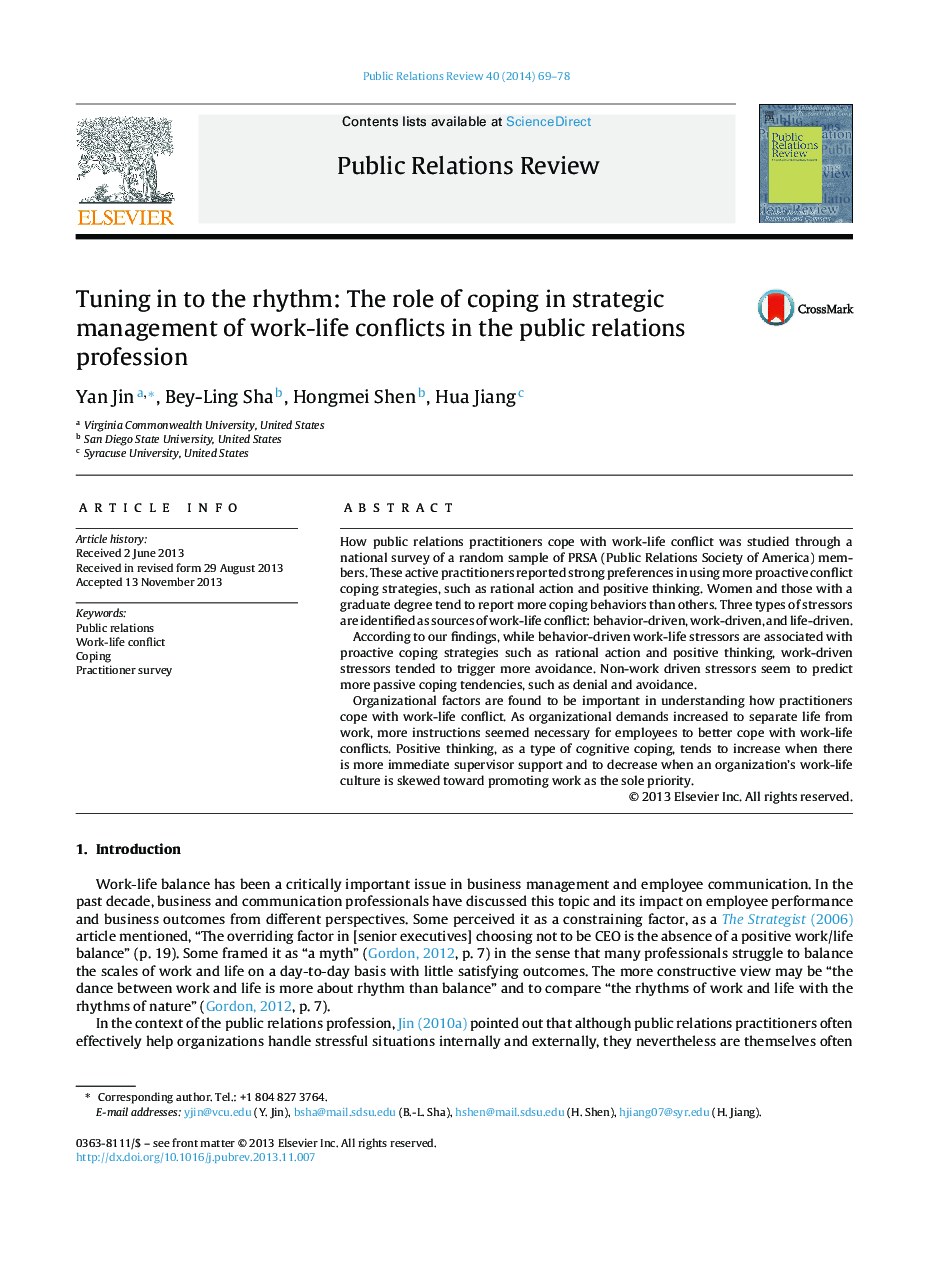| کد مقاله | کد نشریه | سال انتشار | مقاله انگلیسی | نسخه تمام متن |
|---|---|---|---|---|
| 139290 | 162490 | 2014 | 10 صفحه PDF | دانلود رایگان |
• A national survey of PRSA members is conducted to quantify work-life conflict and explore the role of coping in work-life conflict management.
• Work-life conflicts are found to be derived from work-driven, life-driven, and behavior-driven stressors.
• Active practitioners have strong preferences in using more proactive conflict coping strategies, as opposed to more passive strategies.
• Immediate supervisor support and work-life culture are found to be important in understanding how practitioners cope with work-life conflict.
• Coping strategies are found to be influenced significantly by demographic characteristics as gender and education level.
How public relations practitioners cope with work-life conflict was studied through a national survey of a random sample of PRSA (Public Relations Society of America) members. These active practitioners reported strong preferences in using more proactive conflict coping strategies, such as rational action and positive thinking. Women and those with a graduate degree tend to report more coping behaviors than others. Three types of stressors are identified as sources of work-life conflict: behavior-driven, work-driven, and life-driven.According to our findings, while behavior-driven work-life stressors are associated with proactive coping strategies such as rational action and positive thinking, work-driven stressors tended to trigger more avoidance. Non-work driven stressors seem to predict more passive coping tendencies, such as denial and avoidance.Organizational factors are found to be important in understanding how practitioners cope with work-life conflict. As organizational demands increased to separate life from work, more instructions seemed necessary for employees to better cope with work-life conflicts. Positive thinking, as a type of cognitive coping, tends to increase when there is more immediate supervisor support and to decrease when an organization's work-life culture is skewed toward promoting work as the sole priority.
Journal: Public Relations Review - Volume 40, Issue 1, March 2014, Pages 69–78
